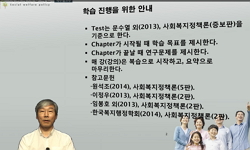1920년대 중반 마르크스주의 사상이 한반도에 들어오면서, 계급 개념은 한국 민족성이란 개념을 강화시켜주면서도 동시에 이 개념에 도전하는 모순적인 영향을 주었다. 마르크스주의적 계급...
http://chineseinput.net/에서 pinyin(병음)방식으로 중국어를 변환할 수 있습니다.
변환된 중국어를 복사하여 사용하시면 됩니다.
- 中文 을 입력하시려면 zhongwen을 입력하시고 space를누르시면됩니다.
- 北京 을 입력하시려면 beijing을 입력하시고 space를 누르시면 됩니다.

수행적 민족성 ― 1930년대 식민지 한국에서의 문화와 계급 = Performative Ethnicities: Culture and Class in 1930s Colonial Korea
한글로보기https://www.riss.kr/link?id=A106559963
- 저자
- 발행기관
- 학술지명
- 권호사항
-
발행연도
2005
-
작성언어
-
-
주제어
민족국가주의 ; 좌파 문학 ; 마르크스주의 ; 민족 횡단 ; 농본주의 ; ethnonationalism ; leftist literature ; Marxism ; crossethnicking ; agrarianism
-
등재정보
KCI등재
-
자료형태
학술저널
-
수록면
31-71(41쪽)
- 제공처
- 소장기관
-
0
상세조회 -
0
다운로드
부가정보
국문 초록 (Abstract)
1920년대 중반 마르크스주의 사상이 한반도에 들어오면서, 계급 개념은 한국 민족성이란 개념을 강화시켜주면서도 동시에 이 개념에 도전하는 모순적인 영향을 주었다. 마르크스주의적 계급 개념은, 한편으로 한국 민족성을 더 한층 본질화했던 문화 민족주의 진영을 탄생케 했다. 또 다른 한편으로, 지구 자본주의의 초-민족적/국가적 구조에 근거해서 구성된 마르크스주의적 계급 개념은 계급의 이질성을 민족성과 연결시키기도 하고 분리시키기도 하는 단속적인 역할을 담당했다. 논자는 한국 민족성이란 언어, 의복, 관습 그리고 정신과 행동의 경향 등과 같은 수행적 지점들에 속하는 문화적 표준들의 종합이며, 이는 1900년대 이후 한국에서 인종과 민족에 대한 의사-생물학적인 개념들과 밀접히 연결되기 시작했다고 주장한다. 이 논문은 상대적으로 주변적인 계기라 할 수 있는 것, 즉 20년대 후반과 30년대에 나온 식민지 한국 소설에서 표명되는 민족 경계의 횡단의 계기들을 중점적으로 다룬다. 이러한 민족적 일탈의 계기들은 한국인성의 퇴적을 외부로 드러내고, 동시에 한국 민족성의 인용 가능성 자체를 드러낸다. 이 논문은 두 개의 부분으로 이루어져 있어서, 거기에서 문화 민족주의 진영에 의한 민족성과 계급의 표명 내용을 마르크스주의 작품에서의 내용과 대조한다. 문화 민족주의 진영을 다루면서, 필자는 두 개의 재현적인 농촌 소설, 이광수의 『흙』과 심훈의 『상록수』를 조명한다. 이 논문의 나머지 절반에서는 마르크스주의와 좌파 경향의 진영에서 나온 광범위한 텍스트들을 다룬다. 문화 민족주의적 작품들이 민족성의 수행성을 상류층 사람들과 지식인들에게 한정시키고 있다면, 좌파 작품들은 프롤레타리아 계급이 유동적이고 유연한 민족 정체성의 지점을 점유할 동기 부여와 잠재성에 대해서 보다 급진적인 그림을 그려 보여주고 있다.
다국어 초록 (Multilingual Abstract)
With the introduction of Marxist thought into the Korean peninsula in the mid 1920s, I argue in this paper, the notion of class had the contradictory effect of simultaneously intensifying and yet challenging the notion of Korean ethnicity. The Marxist...
With the introduction of Marxist thought into the Korean peninsula in the mid 1920s, I argue in this paper, the notion of class had the contradictory effect of simultaneously intensifying and yet challenging the notion of Korean ethnicity. The Marxist concept of class, on the one hand, brought into existence the Cultural Nationalist camp, which further essentialized Korean ethnicity. On the other hand, Marxist conceptualization of class based upon trans-ethnic/national structure of global capitalism, played an interruptive role by linking and de-linking the heterogeneity of classes to ethnicity. I argue that Korean ethnicity is a set ofcultural norms, pertaining to such performative sites as language, clothing, customs, and mental and behavioral dispositions, which had come to be closely associated with the quasi-biological notions of race and ethnicity since the 1900s in Korea. This paper highlightswhat are relatively marginal moments, moments of crossing of ethnic boundaries in the colonial Korean fiction from the late 20s and the 30s. These moments of ethnic transgression render sedimentation of Koreanness visible, revealing the very citationality of Korean ethnicity. This paper consists of two parts, comparing the articulations of ethnicity and class by the Cultural Nationalist camp with those in the Marxist works. From the Cultural Nationalist camp, I focus on two representative agrarian novels, Yi Kwang-su’s Soil and Sim Hun’s Evergreen. The second half of the paper treats a wide variety of texts from the Marxist and leftist-leaning camp. If Cultural Nationalist works limit performativity of ethnicity to the elites and intellectuals, the leftists offer us a much more radical picture of the proletarian class’s motivation and potential for occupying positions of fluid and flexible ethnic identity.
동일학술지(권/호) 다른 논문
-
- 동국대학교 한국문화연구소
- 테어도르 휴즈
- 2005
- KCI등재
-
- 동국대학교 한국문화연구소
- 김동훈
- 2005
- KCI등재
-
- 동국대학교 한국문화연구소
- 이평전
- 2005
- KCI등재
-
- 동국대학교 한국문화연구소
- 박성순
- 2005
- KCI등재




 RISS
RISS KISS
KISS






